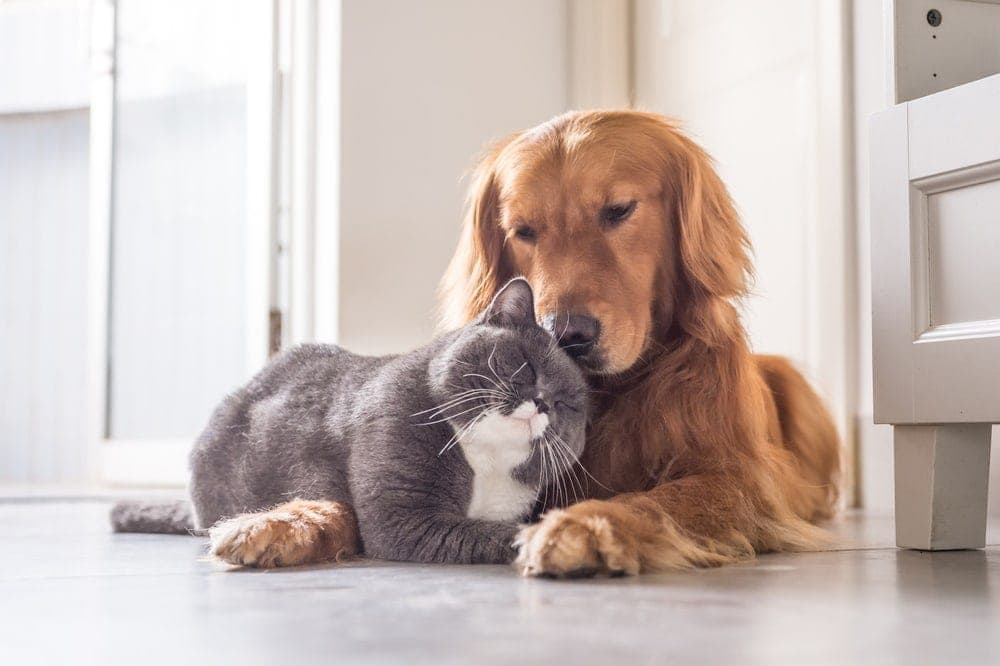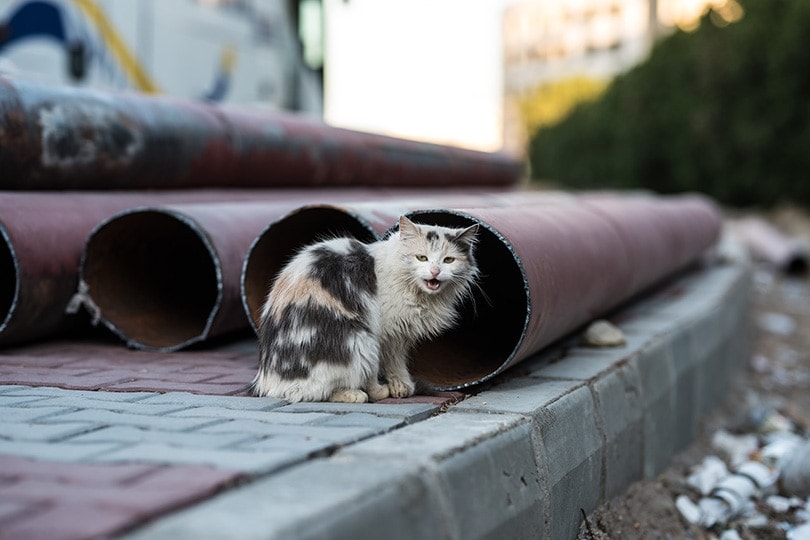Are Maine Coon Cats Hypoallergenic? Vet-Approved Allergy Facts & Prevention Tips

Updated on
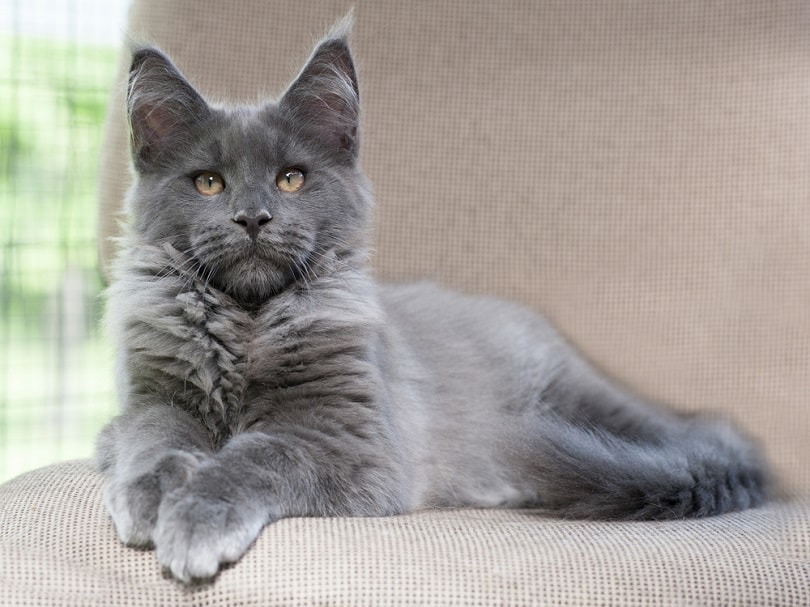
Maine Coons are popular cat breeds kept by many cat lovers. A native of the state of Maine, this breed is known for its large size and a thick double coat of fur. It is one of the oldest natural cat breeds in North America.
Most Maine Coon lovers would love to know whether they are hypoallergenic. The short answer is no. These breeds are not ideal for people with pet allergies and sensitivities.
If you are considering getting a Maine Coon for your home, here’s all you need to know about why they are not hypoallergenic and how to leave with them if you have triggers.
What Causes Cat Allergies?
Hypoallergenic means that your pet has a lower likelihood of causing an allergic reaction. Although there are no cats that are entirely allergy-free, there are some breeds that have lower incidences, such as the Hairless Sphynx and the Balinese. So what causes allergies from the Maine Coons?
Most people assume that allergies are caused by fur. However, this is not the sole cause because cat allergens are also found in their saliva, urine, and the microscopic shedding of skin, known as dander.
The primary cause of these allergies is the protein called Fel d1, however there are over 10 such proteins in cats which may trigger a reaction in allergic individuals. Fel d1 is primarily concentrated in a cat’s saliva. When cats groom themselves by licking their fur, they tend to spread this protein around the entire body. They’ll also leave it behind when they urinate.
The protein levels vary from cat to cat, with some breeds or individuals producing less Fel d1. Maine Coons are not in this category; therefore, they will trigger allergies. Once an individual with an over-sensitive immune system comes into repeated contact with the protein, they are likely to experience a reaction.
Since the allergens are sticky and light, avoiding them is quite a challenge. They stick to any surface, and also, as the cat sheds, they become airborne. Because of this, one can get exposed and develop an allergic reaction without ever owning a cat.
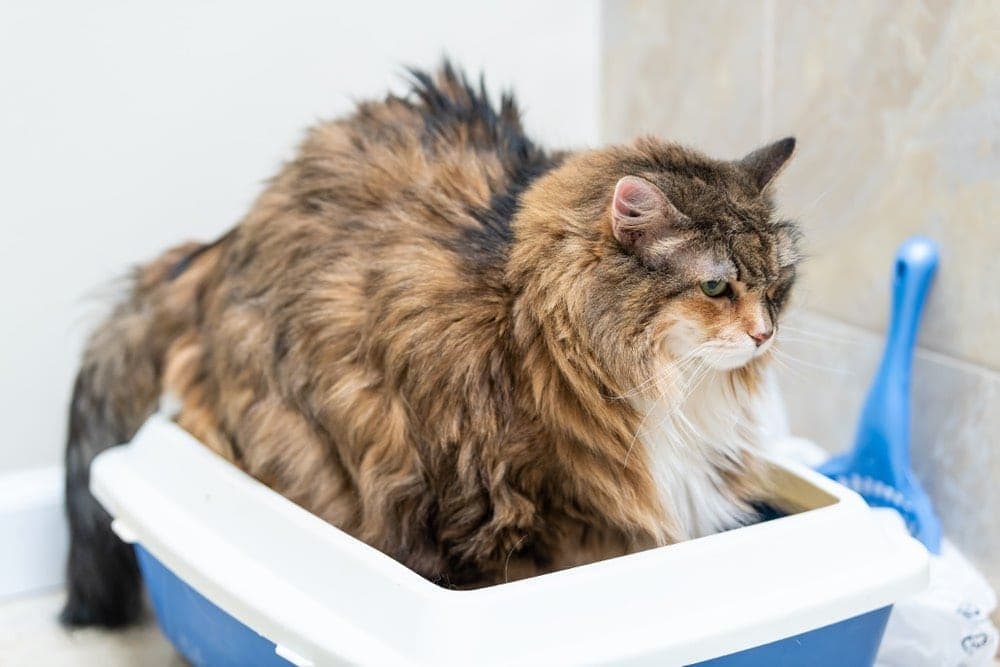
Why Are Maine Coons Allergy Inducing?
Let’s find out why this breed causes allergies.
- They Produce Allergy Proteins: Like all other cat breeds, Maine Coons produce regular amounts of proteins people might be allergic to, including Fel d1 proteins.
- They Have Long Fur Coats: Maine Coons are well known for their stunning double fur coats. Because of the long hair, they are likely to groom themselves a lot, shed more, and hold on to the protein for extended periods.
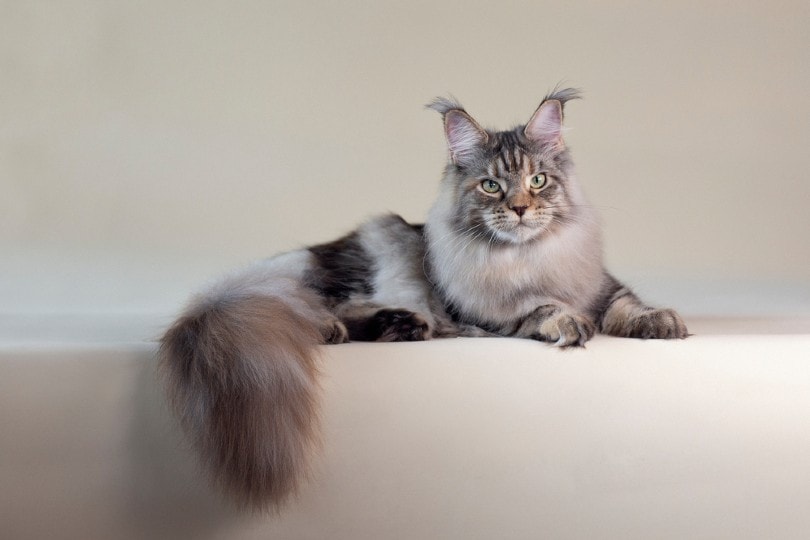
How to Check if You Are Allergic to Maine Coons
If you are prone to allergies and still determined to get a Maine Coon a visit to the pathological clinic for an allergy test will provide clarity on whether you can handle cats or not.
Maine Coon Allergy Signs
If you have a severe reaction to cats, it is best to refrain from adopting them. Seek medical advice for appropriate allergy medication. If you are allergic to cats and have an additional medical condition such as asthma, you could experience tightness or pain in your chest and shortness of breath. This can lead to breathing difficulties.
How do you identify when you are having an allergic reaction from your Maine Coon? The allergic reaction will also vary from person to person. Highly sensitive individuals will immediately react as soon as they come into contact with small amounts of the protein they are allergic to. On the other hand, less sensitive people will react at a slower rate, and with less severe reactions. It is important to note that repeated exposure to an allergen can exacerbate reactions and the rate at which they occur.
You are likely to experience sneezing, a runny nose, coughing, nasal congestion, red itchy eyes, wheezing, itchy nose, mouth, and throat if you are mildly allergic to cats.
Some people will experience skin allergies known as allergic dermatitis. This condition results from the allergen directly touching your skin. Signs of this dermatitis include hives, eczema, and itchy skin.
Most of these common signs of a mild reaction are similar to a cold; therefore, it can be challenging to determine whether it’s an allergy from your Maine Coon. To make this conclusion, you’ll have to consult a medical professional to assess yourself for an allergy.
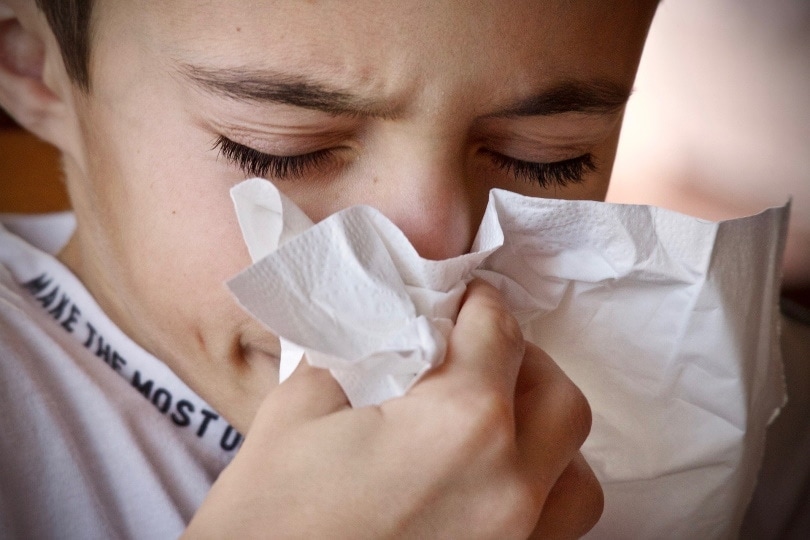
How to Minimize Maine Coon Cat Allergies
Maine Coons are a popular breed for pet owners. If you are still determined to get one, there are strategies that you can take to minimize allergic reactions.
Important: please refrain from adopting a cat if you have a severe allergy to them. It is impossible to have an allergy-free cat.
You can use one or more of these tips to manage your mild triggers.
1. Consult Your Doctor
It’s always best to see a medical doctor who may assess you and prescribe anti-allergy medications appropriate for you. These medications will help you manage the signs while living with your Maine Coon.
You can get antihistamines or decongestant sprays to help deal with triggers. However, if the allergies become severe, your doctor can recommend immunotherapy to provide a long-term solution.
2. Brush Your Cat Regularly
Brush your cat’s coat daily if you can. Maine Coons require occasional grooming to prevent matting. Brushing your cat will remove excess dander from the fur before it spreads around your home. If brushing your cat is unbearable for your allergies, try wearing a mask or having a friend or professional groomer perform this task for you.
After the session, clean the brush properly and wash your hands before touching your face. This will limit the amount of allergen on your body.
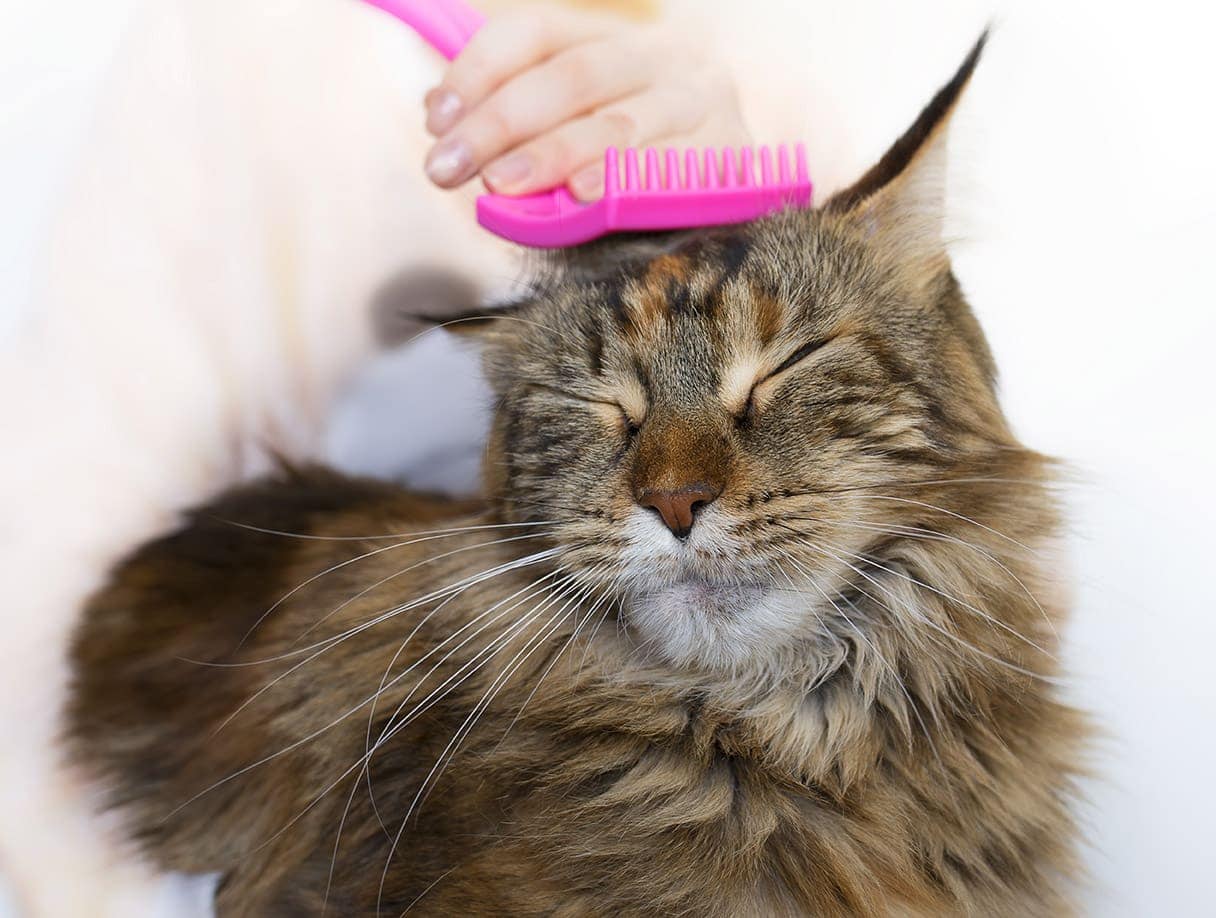
3. Bathe the Cat
Bathing will remove the excess protein still trapped on the fur coat. However, research indicates that this method only reduces the amount of dander on your cat’s coat for a period of about 2-3 days. It is, however, an acceptable option if you have a friend coming over for a few days who happens to have cat allergies.
The advantage for this is that some Maine Coons tend to enjoy water, making it easier to bathe them often. When washing your cat, ensure you use shampoo specifically for cats to avoid skin irritation.
4. Wash Your Hands Often
Petting the cat is a fun and bonding experience for both you and your cat. To prevent contact with allergens, wash your hands regularly, especially after you have come into contact with your cat’s coat. The protein from the saliva gets stuck in your hands every time you groom your pet, therefore make it a habit to wash your hands thoroughly.

5. Minimize Petting Your Cat
By minimizing the number of times you touch your cat, you’ll avoid contact with allergens. If you can, try as much as possible to pet your pet less. Please be mindful that this isn’t an appropriate option for your cat in the long-term, if you don’t have other people your cat can socialize with, you should not use this as a form of controlling your signs.
6. Clean Your Home
Apart from your body, allergens stick to surfaces in your home, which can trigger reactions. If you own a Maine Coon, you need to constantly clean your house and wipe all the surfaces.
Vacuuming will pick up any allergens on the floor. If you have many carpeted floors, consider switching to wooden or tiled alternatives. This is because dander tends to accumulate in a higher amount on fabrics such as couches, drapes, carpets, upholstery, and beds. In addition, you should invest in an air filter with a HEPA filter.
7. Use Gloves to Garden
Even with a designated litter box, cats will often urinate in the garden. Wear gloves when gardening to avoid coming into contact with urine that may contain allergen proteins.
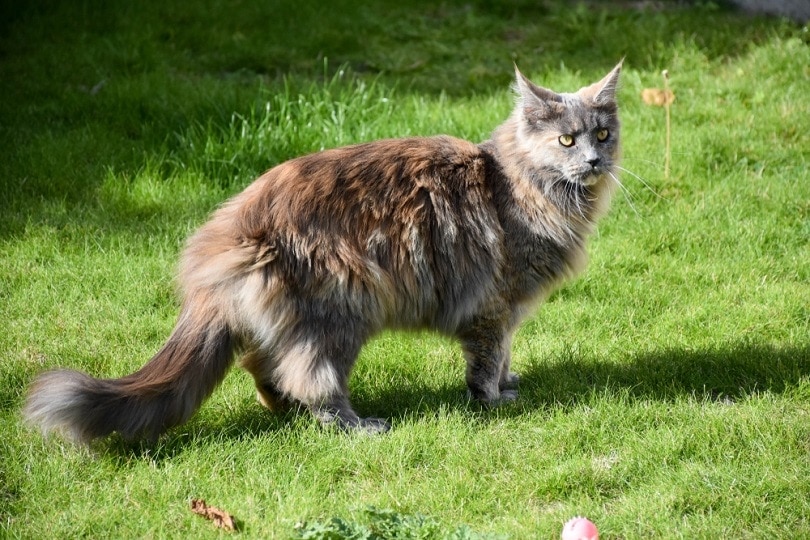
8. Set House Limits
Most cat owners tend to cuddle their pets on the beds, especially at night. Maine Coons will leave allergens all over your bed and sheets, which will come into contact with your body.
Instead of letting the cat loose around the entire house, set limits and train them to stay away from areas such as the bedroom. This strategy will limit your encounter with allergens.
9. Install Air Filters
Allergens can be airborne and cause a lot of sneezing. Using air purifiers will clean the air in your home and keep it allergen-free. In addition, you need to change them often to keep your home clean.
10. Keep the Litter Box Clean
Allergens may be present in your Maine Coon’s urine. To avoid contact, have someone else from the family who is non-allergic empty and clean the litter box.
In some situations, you might be allergic to the litter. Litters in the market today can be fragranced, dusty, whereas some have chemical irritants, all of which can trigger an allergic response. If you have any of these triggering materials, your Maine Coon will have litter particles stuck on their long fur and distribute them around your home surfaces.
To get rid of the triggers, swap to a hypoallergenic litter such as pine corn or paper litter.
11. Use a Mask
You can occasionally wear a mask when you need to clean or empty the litter box. If you are affected by airborne allergens, consider using a mask when brushing or bathing your Maine Coon.
Do Maine Coons Shed a Lot?
Compared to other cat breeds, Maine Coons shed fur moderately. They will tend to shed more during the warmer months and have a thicker coat during winter.
Maine Coons have a medium to a long fur coat. Therefore, when they start shedding, you’ll notice a lot of fur around your home and surfaces.
Once they shed, the allergens trapped on the fur coat are released into the air and trigger allergic reactions. This is why it’s recommended to regularly groom your cat to prevent the coat from matting and keep the allergens to a minimum.
Summary
If you are a lover of Maine Coons, we have established from this article that they are not hypoallergenic. Since all cats produce the Fel d1 protein, you can choose to keep a Maine Coon and follow the tips to minimize allergies if you are highly prone to them.
By cleaning your cat and home regularly and taking steps to avoid contact with allergens, you can comfortably live with a Maine Coon. However, the allergic levels tend to differ from person to person. Therefore, if all the home-based strategies fail, you can get medication to deal with the allergies.
See also:
Featured Image Credit: Okeanas, Shutterstock




